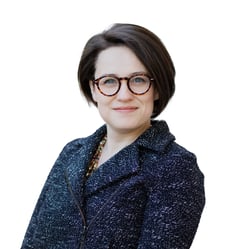
When sitting down to write an article, I often seek to shed light on one issue or explicate one topic. This time, though, there are so many things happening in the nonprofit sphere that I am opting for a “listicle” format instead.
1. The ACE Act:
The Accelerating Charitable Efforts (ACE) Act has been introduced in Congress. It's main goal is to prevent charitable funds from gathering dust in donor-advised funds (DAFs) for long periods of time without being distributed to charities. Some giving trends suggest that contributions to DAFs have displaced overall charitable giving rather than increased it, since DAFs currently have no imposed minimum distribution requirements (although they do boast a payout rate well above the 5%–7% average of private foundations . . . hmm).
The ACE Act, if passed, would impose limits on existing DAFs and create new regulations for future DAFs:
-
For existing DAFs, deductions for contributions would no longer be immediate. The deductions would not be allowed until the cash (or the proceeds of a non-cash donation) is distributed out of the DAF to a charity. Existing DAFs could incur a 50% excise tax for any contributions that are not distributed within 50 years.
- For new DAFs, donors could lose advisory privileges over a contribution and its earnings if not distributed to a charity after 14 years.
Before I spend this whole article opining on ACE, let’s move on.
2. My colleagues and I loved this article:
Take a look at how you can “catapult your favorite charities to resiliency.”
3. I was fascinated by this piece in the WSJ:
It describes how the Detroit Institute of Arts has managed to survive the many economic uncertainties that the area has weathered. While the majority of museums across the country are suffering in the post-COVID world, the DIA boasts pre-pandemic levels of visitors and balanced budget. The author argues this is due to a millage levied on the residents of the three surrounding counties, which has just been renewed for another decade. I confess, I chuckled when I got to this line: “Fortunately, through the generosity of foundations, corporations, individuals and city pensioners, [the building and collections being sold off to Detroit’s creditors] didn’t happen.”
So while the millage may be sustaining them now, they wouldn’t be here without charitable intervention at the moment of crisis. Still, it raises a really interesting question to me—I’m currently paying a heck of a lot more than $20/year for museum memberships; in fact, I fork out an amount I would consider prohibitive for many families in greater Baltimore. Could this be a promising path forward for the arts and culture sector? Food for thought.
4. Gen Z is on the move:
Gen Z is ready to shake up the methods and recipients of charitable giving. Take a look at the data here from the Barna Group (slides 4–9 especially) for some insights into their philanthropic disposition.
5. I loved David Bahnsen’s latest book, Full-Time: Work and the Meaning of Life:
Should it be mandatory high school reading? Yes. Am I recommending it to everyone I come across, including total strangers at TSA? Yes. Will you love it? Yes. Grab a copy—I don’t give a bad tip.
So much for keeping it brief . . . but there’s just that much happening in the world of giving!
About the Author
 Cecilia Diem is a Director and leader of Donor Advisory, AmPhil’s consulting practice serving charitable foundations and philanthropists. In this role, Cecilia advises leading individual and institutional donors on strategy, donor intent, evaluation, governance, operations, and capacity building to maximize the impact of their giving. Previously, she led AmPhil’s East Coast consulting group, supporting over forty nonprofit clients and raising more than $150 million annually. Before AmPhil, she held positions at The Philanthropy Roundtable, Americans for Prosperity and Americans for Prosperity Foundation, and the National Museum of Women in the Arts.
Cecilia Diem is a Director and leader of Donor Advisory, AmPhil’s consulting practice serving charitable foundations and philanthropists. In this role, Cecilia advises leading individual and institutional donors on strategy, donor intent, evaluation, governance, operations, and capacity building to maximize the impact of their giving. Previously, she led AmPhil’s East Coast consulting group, supporting over forty nonprofit clients and raising more than $150 million annually. Before AmPhil, she held positions at The Philanthropy Roundtable, Americans for Prosperity and Americans for Prosperity Foundation, and the National Museum of Women in the Arts.-1.png)

